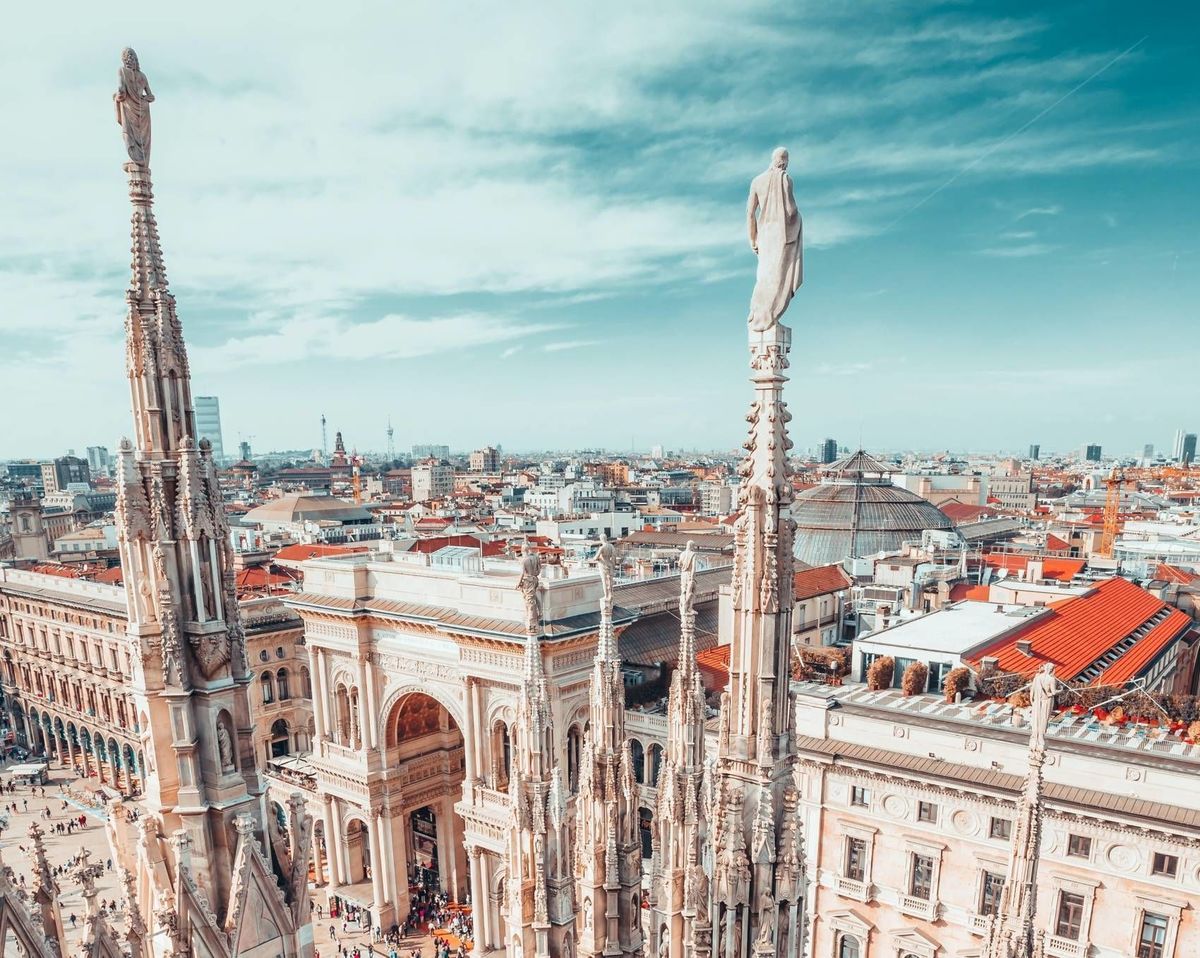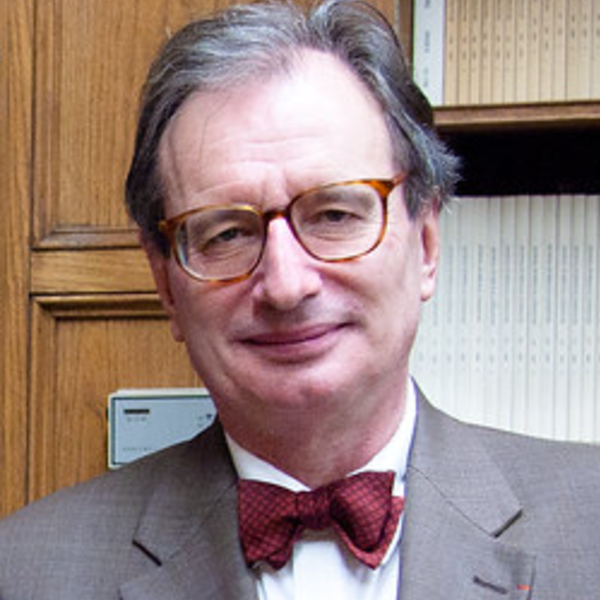What would it mean for the Church to succeed? To establish a Christian kingdom on earth? To found a Jerusalem rising from the earth rather than descending from the heavens? To integrate the spiritual order and the natural order into a perfect “symphony”? Formulating these questions is enough to see their manifest theological inadequacy, and to be compelled to denounce the idols and blasphemies they contain.
After all, Christ himself did not succeed in this sense; and this was because he never wanted to. What is more, he denounced this too human and too political “restoration of the kingdom of Israel” (Acts 1:6) as the temptation and misinterpretation most contrary to the proclamation that “the Kingdom of God is near to you, is among you” (Luke 10:9, 11). Would we be greater than our master ( John 13:16)? What do we will, what do we hope for in the end—his will, or ours?
We can add a final remark: Are we first and foremost the ones in charge of the salvation of the Church, of its growth, its power, its efficaciousness, its improvement? Does not Christ himself take care of that? Of course, he does so by asking each one of us to reform ourselves, that is to say, to convert to the life of the Spirit. And of course, he promised his Church that the gates of Hell would not prevail against it. But he never guaranteed it would become a majority, or dominant in the world: he only asked it to pass through the same experience of the cross by which he gained the Resurrection.
The Church should not even be our primary concern, at least in the sense of the Church as a human society among others in the world (even though we, like everyone else, observe that it alone continues through the centuries, always the same and always new, always faltering and persecuted, but indestructible, as promised). Indeed, what we have legitimately to be concerned about above all is not the Church, but what it makes possible, and that from which it comes: the life given by “the Spirit, poured out in our hearts” (Romans 5:5). For after all, the believer who is serious and practicing the faith forgets to occupy himself with the reform of ecclesiastical institutions (a task that he willingly leaves to workers who specialize in domestic repairs).
The Church matters to the rank and file of the baptized only in the way the distribution of water matters to the resident of a city: as long as the water of the Spirit that I must drink always flows through its channels, as long as the system for dispensing the sacraments gives me the life of the Spirit, my first concern remains to drink, and not to remake the water conveyance system. I leave this system to specialists who devote themselves to its maintenance, which is indispensable and endless, but secondary. I remain the user, the beneficiary, and in the end the sole judge of these reforms (whence there arises an ecumenism of practical spiritual results among the “churches”).
Who am I, after all, to claim to reform the Church? Who am I even to criticize it? I would have to be more lucid, courageous, and ultimately more holy than it if I were to do so. So then either I must be quiet, or I must act as a saint. The saints alone reform the Church, but by edifying it, not by taking it over, or by governing it. “Whenever the Church becomes too involved in politics, it is no longer bringing forth enough saints” (Georges Bernanos).
A field hospital, to use Pope Francis’s fitting expression: on its wounded the Church thus practices frontline, emergency medicine. Or a refugee camp, sheltering survivors in the mud and under tents. But one can survive in any old temporary shelter. Only Christ knows the state of his Church, and it is even the Father’s secret to know who those are that Christ received and did not lose (John 17:12). The members of the Church are not the ones to know the state of the Church, or even the Church in its entirety. All they have is access, in the Church that they cannot see, to the knowledge of Christ and, through him, to the Father in the life of the Spirit.
Since we are speaking about the Church, the Catholic Church, which stands as catholic before a society that is not (and which probably will not become so in the future any more than it ever was in the past), we should probably, if only in passing, take seriously the paradoxes that define it as societas perfecta, a sign of contradiction among the nations, in order to know what we are talking about when we talk about it.
What is surprising is not that the Church appears by all evidence imperfect: it is, after all, composed of sinners, gathered even at the crossroads, from among the garbage dumps, and in the slums. It also knows better than anyone that it contains nothing other than those sick unto death, those wounded by life, those who are vacillating sinners, yet stubborn. The astonishing, real surprise lies in the fact that it turns like a washing machine washing dirty laundry, a business that turns crooks into saints, more dazzling than any fuller on earth could whiten them, and from which they will go to fill the balconies of Heaven. It is the only machine that makes gods, or more precisely, that makes saints, a machine never before seen on earth. And this is because it is not a machine but the living Body of Christ.
Many among men, and even a part of each one among us, condemn the Church, or at least criticize it. Why is that? Deep down, the issue is not reproach for its past history but the fact that as silent as it seems to remain, the Church reproves the customs or the decisions that disrupt or even prevent the hearing of the Gospel and access to the life of the Spirit. Under the glaring light of this veritas redarguens, nothing is more normal than that a majority in every society, ourselves included, ceaselessly clamors for the Church to evolve and “adapt,” for it finally to end up approving our habits, in short for it to leave us in peace with our evils and the words we use to justify them.
And if the Church refuses, as it cannot but do, the majority protests; but with a contradictory protestation, since it thus acknowledges an in fact inordinate importance in the judgment of an institution that it nevertheless claims to impugn and hold as null and void. The Church cannot “change with the times” because it cannot change anything about what happens to it, about the call that summons and stirs it. On the contrary the Church’s only ambition must be to change the world of its time, without ever knowing with what success, since that is not in its power. It is, however, solely up to the Church to improve its response, not to the complaints of the world, but to the initial and final word that Christ puts forth.
The Church can change nothing of what makes it possible without thereby breaking down and dying on the vine (or rather dying apart from the vine that nourishes it) ( John 15:4). The only thing that it can and must change is itself, in order to remain and become, in each era and in each place, the same and unique access to Christ. This one time, Claudel is wrong: in the case of the Church, it is necessary for everything to change so that everything can remain the same. The Church can change the face of the world only by remaining itself. But it can remain itself only by changing itself (allowing itself to be changed) from generation to generation in accord with the call that it constantly receives.
We now come to the identification of the crisis that French Catholics must confront. In fact, the issue is to confront an appearance of crisis with another crisis that is real because crucial. Before we start speaking too quickly of a “crisis of the Church,” it makes sense to recognize the obvious: that there is a crisis in the greater part of French society, a crisis that affects, as we said earlier, almost all the groups that make it up. But the true and the most worrisome phenomenon is located elsewhere: when the crisis becomes a state that extends to most of the social body, as is today the case ever since what we call the “first oil shock” of 1974 and the end of the “Trente Glorieuses”; when from decade to decade the focus is on “managing the crisis”; when the crisis becomes the sole object of management and no longer the opportunity for a decision; when the political power reveals its powerlessness and its uselessness, because, dispossessed of any power and completely hemmed in, it can only repeat that “there is no other choice,” that there is only one policy possible.
In short, when the political power appears as an impotent fraud and it cannot help but tell the people that this is so by making them pay the ever greater price of its failure, then we are dealing no longer with a crisis but with decadence. We in France and in Europe are not living a crisis, but rather enduring our powerlessness to enter into a crisis or to exit from one at the price of a decision. The issue then is not at all a crisis, but an absence of crisis, a much more worrisome crisis of crisis. There has not been a crisis for forty years, if crisis means the moment when it becomes possible and therefore necessary to exit from calcified powerlessness and endless conflict through an inaugural decision. For forty years, we have suffered through the lies of repeated slogans: no, no one is at the helm, no, we do not change life, no, change is never now, no, nothing at all is possible for us because we are not united. We are not falling into the abyss, we are suffocating from a stagnant decadence.
By contrast, we now understand better why the Church, even in France, is not “in crisis,” in the sense constantly repeated by the wise, the experts, and the politicians: because the Church, and perhaps she alone among all the communities of the nation, finds herself still and ever the beneficiary of the grace of encountering a “true crisis”: “You judge (krinēte, you put yourselves into crisis) according to the flesh, but I judge no one. And when I do judge (krinō, I put into crisis), my crisis is the true crisis (hē emē krisis alēthinē estin), for I am not alone, but I [I am] with him who sent me” ( John 8:15–16).
Let us understand this well: Christ gratifies us with a “true crisis”—not an apparent crisis, according to the flesh, such as is envisaged by the world, such as would lead only to the (not even) eternal repetitive return of the same—but a crisis in which we can make up our minds once and for all (which of course does not release us from repeatedly doing so, like our daily bread), where it depends only on us to respond to the vocation of a son of the Father in the life of the Spirit. This crucial crisis restores our freedom by giving it the opportunity at last to do what it wills, that is to say what spontaneously it does not will, because it believes it cannot do so: become the efficacious cause of a change (metanoia, conversion) through the sole strength of thought (to take up a definition of free will offered by Kant). The Christian attains to nothing less, by the “true crisis,” than this freedom that Bernanos used to call honor, and that comes only from God. For no man is sufficient to honor another man (they each know this quite well in proportion as they exchange honors, which they believe in less and less). For in order truly to honor a man, nothing less than God is necessary.
We thus understand better that the Church, even in France, can appear as the only society that is not “in crisis,” because it can practice freely its “true crisis” by deciding over and over again (semper reformanda) in favor of Christ. And it can do so, and thus must do so, precisely because it alone (in contrast to other social groups) does not have to claim to be healthy and strong in order to succeed in doing so, precisely composed as it is of the weak and the sick, but with weakness and sickness in which grace abounds. For to whom can grace be given superabundantly, if not to those who know that they lack it?
EDITORIAL NOTE: This excerpt is adapted from the chapter "French and Catholic" in A Brief Apology for a Catholic Moment, translated by Stephen E. Lewis. Reprinted by the kind permission of the University of Chicago Press and Éditions Grasset, ALL RIGHTS RESERVED.


